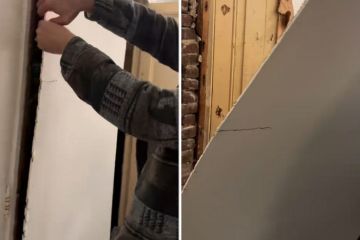Women making up for what they don't have in super by investing in property: Property Council of Australia

An increasing number of women are making up for what they don’t have in super by investing in property, a new report has revealed.
Today, a massive 47 per cent of Australians who own an investment property are women, an analysis of the latest Australian Tax Office data by the Property Council of Australia has found.
“This might be surprising to many, but it shows that women know that they start off behind the eight ball when it comes to securing their futures,” says Council chief executive Ken Morrison.
“The outcome suggests women are making deliberate decisions to build wealth in addition to superannuation. Housing allows women to rely on the benefits of asset growth even when they might be out of the workforce.”
Even though women still earn generally less than men – 28.7 per cent less in ASX 200 organisations and 16 per cent less across all companies and occupations, according to the Workplace Gender Equality Agency – they still appear determined to buy property as an investment.
Fifty-five per cent of the people who earn less than $80,000 and negatively gear their investment properties are also now women, compared to 45 per cent of men on a similar income.
“Despite the fact that women on average earn considerably less than men, they are just as likely to use investment property to secure their future,” says Mr Morrison. “Many women know that their superannuation won’t be enough to provide for their retirement because they have taken time out of the workforce to raise a family. So they are looking for other ways to build financial security.
“And what is of particular interest is the number of women on taxable incomes below $80,000 who negatively gear.”
Marion Mays, the founder of wealth advocacy firm Thalia Stanley Group who regularly runs seminars to educate and mentor women about investing in property, says previously they were outnumbered, making up only a third of investors. But now they’re realising that, when it comes to creating a secure future, “a man is not a plan”.
“Now more and more women are finding a love for investing and becoming more proactive and resourceful about their financial position and using property to secure their financial future,” she says. “A common response from women in the past has been that they leave that sort of thing to their partners, and they hold back because of a lack of investment know-how and the fear of making costly mistakes.”
The Property Council research shows that 15.2 per cent of Australian female taxpayers own an investment house or apartment, only slightly under the 15.7 per cent of men who own one or more.
In addition, 45 per cent of those women investors negatively gear their purchase as against 55 per cent of men. But the men claim significantly more in those deductions – $9904 on average as against $7253 by women – probably reflective of the gender pay gap in that women are not borrowing as much and have a different risk assessment from the banks.
John Hopkins, executive director of financial services company The Hopkins Group, says when he started his company 35 years ago, it was extremely rare to ever see women investing in property. These days, it’s becoming more and more common.
“There’s been a huge change in the last five to 10 years,” he says. “There’s no doubt there are now a lot more women investing in property. I think there’s now much more an expectation among women to be independent and looking for equal reward for equal effort, so why wouldn’t they invest almost as much as men?”
Mortgage Choice spokesperson Melissa McCarney says that while they don’t keep specific data on gender, she wouldn’t be surprised to discover that women are now investing almost as much as men.
“In today’s world, women and men have equal opportunities to earn income that supports investments so it wouldn’t be unexpected to see a higher proportion of women investing in property,” she says. “Women are also getting married later and wanting to be more independent.”
Ms Mays believes women are now coming around to the opinion that investing could leverage their income for wealth creation more than a job or savings could, especially at a time when so many marriages end in divorce and women often end up providing for the children.
“The reality is that creating a solid financial foundation for you and your family is not ‘a man’s job’,” she says.
We recommend
We thought you might like
States
Capital Cities
Capital Cities - Rentals
Popular Areas
Allhomes
More
- © 2025, CoStar Group Inc.







